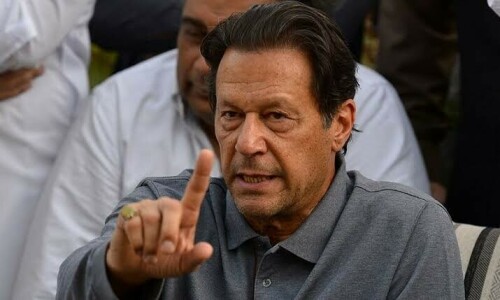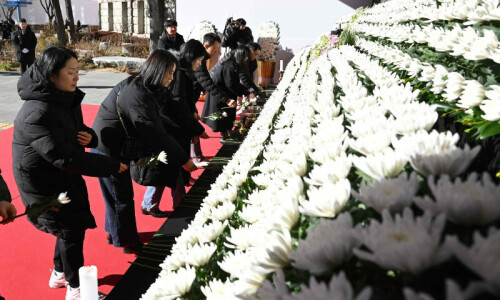KARACHI: Sindh Chief Minister Murad Ali Shah suffered uneasy moments when a short film about contaminated water in the province was played before a three-judge Supreme Court bench on Wednesday and Chief Justice of Pakistan Mian Saqib Nisar remarked that he was saddened to see the situation.
The CM was summoned by the SC bench headed by CJP Nisar to explain his government’s position on a petition pertaining to supply of potable water and better sanitation across the province at the Karachi registry.
“After watching the video, we do feel very sorry for the inhabitants of Sindh. Don’t you?” the CJP asked the CM.
When CM Shah claimed that the situation was not as bad as had been shown in the video which he termed one-sided, CJP Nisar told him: “We both can travel wherever you say in the province and drink one bottle each of that contaminated water”.
The CJP observed that human waste was being deliberately released into the sea without treatment, which was affecting underground water as well, besides playing havoc with marine life. “I am saddened after seeing this situation of the province,” he said.
Murad asked to give a time frame about resolving issues
The CJP said they would not interfere in administrative affairs; however, they would also not allow anyone, be it the chief minister or the prime minister, to act against the Constitution.
He asked the CM to just leave the video and consider the findings of the judicial commission on the same issue. “Let’s move forward to resolve the citizens’ issues on the basis of those findings,” he advised.
The SC directed the CM to submit in court a time frame for resolving the issues.
The CJP asked him when would be the issues resolved making it clear that the provincial government was constitutionally bound to provide safe water and better sanitation to the people.
“Even if we have to come to Karachi every week and summon you, we would do that,” the CJP told CM Shah.
At the outset, the CJP observed that the CM was summoned with full respect and dignity, adding that “the main reason for calling him before the court is to find the solutions of the problems being faced by the people”.
The chief justice observed that the water and sanitation situation in the province was “miserable”, adding that the CM was summoned so they can resolve the situation together.
During the proceedings, he said that Pakistan Peoples Party Chairman Bilawal Bhutto-Zardari was like his child, wishing he could be here to see the situation himself.
The CJP asked the CM to rid people of Karachi water tankers, adding that it was the government’s responsibility to provide clean water to its people.
The bench gave a patient hearing to the CM as he informed the judges the efforts taken by his government.
While the CM talked about the ongoing and proposed water and sanitation schemes across the province, the bench time and again reminded him that it was only concerned with two issues — safe drinking water and better sanitation.
The CM submitted that the water crisis was not as extreme as shown by the petitioner, adding that “if I get an opportunity I will show my video to the court”.
He said that the provincial government was working to resolve the issue, but it was facing shortage of funds.
Quoting figures from a report, he claimed that 100 per cent water supplied to Lahore, 73pc in Sheikhupura and 88pc in Sargodha is not fit for human consumption and said that the court proceedings appeared to only single-out Sindh.
Kamal denies land allotment Former Karachi mayor and Pak Sarzameen Party chairman Mustafa Kamal denied that he had leased out 50 out of 129 acres of land reserved for a water treatment plant in Mehmoodabad during his tenure.
Earlier on Monday, the court had summoned Mr Kamal and directed him to explain his position as to how and under what authority the land was allotted or leased out by him.
Mr Kamal informed the judges that the allotment and leasing powers were not with him, adding that that the land was allotted with the approval of the City Council.
“Even the City Council had no authority to allot the land meant for treatment plant,” the chief justice told him.
He further told the former mayor not to worry if he had not done anything illegal.
The bench also directed the local government secretary to file a detail and comprehensive report as to how the land was allotted. “The report should consist of names of the responsible persons and the one who was allotted water treatment plant Mehmoodabad land,” the CJP ordered.
The hearing was adjourned to a date to be later pronounced by the court’s office.'
Published in Dawn, December 7th, 2017














































Dear visitor, the comments section is undergoing an overhaul and will return soon.